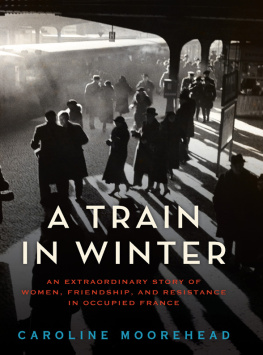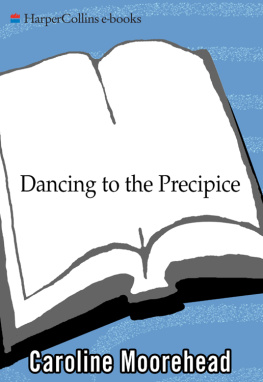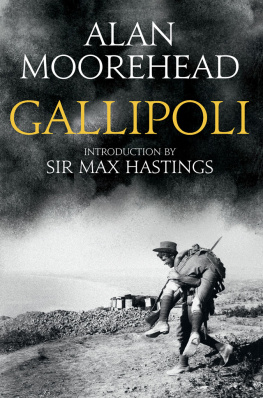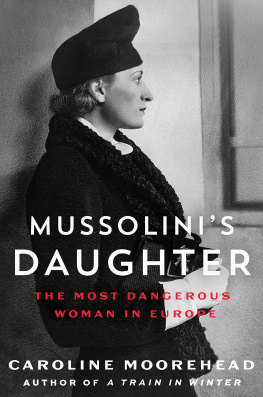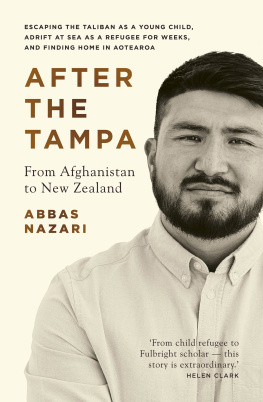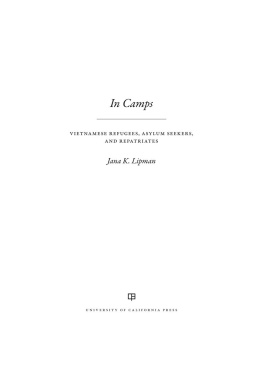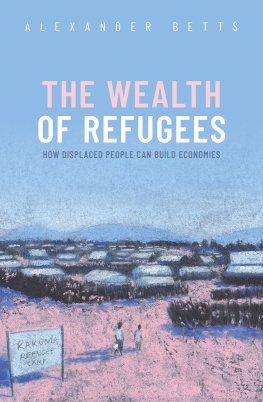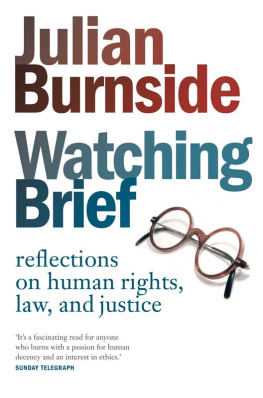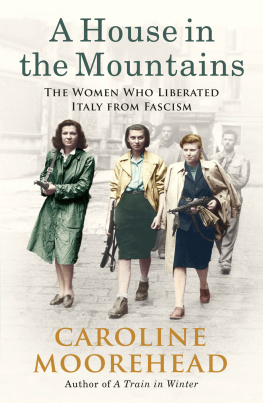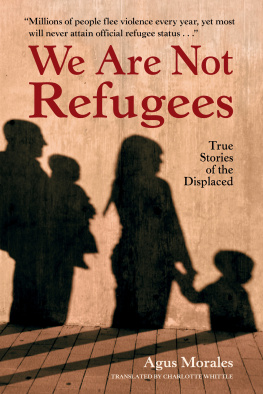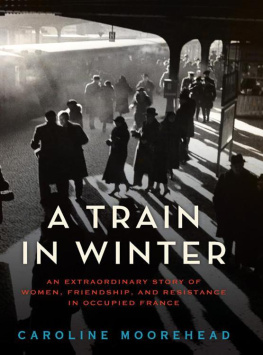Contents
About the Book
Human Cargo is a remarkable oral testament. Caroline Moorehead has visited war zones, camps and prisons from Guinea and Afghanistan to Texas and Italy. She has interviewed emigration officers and members of the United Nations High Commission for Refugees in Geneva while investigating the fates of the 17 million people currently displaced from their homes. How can society cope with this diaspora of the twenty-first century? Is there a difference between good asylum seekers and bad economic migrants? What happens to those whose applications are turned down? The difficult questions are asked, the horrible issues faced. But, above all, Human Cargo celebrates the courage and will to survive shown by ordinary human beings.
About the Author
Caroline Moorehead is the author of Martha Gellhorn: A Life, of which the Daily Telegraph reviewer wrote: Shows an overwhelming sense of what it is to be human, and you cant ask for more than that, can you?
ALSO BY CAROLINE MOOREHEAD
Fortunes Hostages
Sidney Bernstein: A Biography
Freya Stark: A Biography
Beyond the Rim of the World: the Letters of Freya Stark (ed.)
Troublesome People
Betrayed: Children in Todays World
Bertrand Russell: A Life
The Lost Treasures of Troy
Dunants Dream: War, Switzerland and the History of the Red Cross
Iris Origo: Marchesa of Val dOrcia
Martha Gellhorn: A Life
To Lyndall
Prologue: The Lost Boys of Cairo
Refugees live in a divided world, between countries in which they cannot live, and countries which they may not enter. Elie Wiesel
When Musa Sherif arrived at the house of his friend, a tailor from Sierra Leone, early in February 2000, he found no one there. He was surprised because his friend was nearly always at home, waiting for him with his supper, but he reasoned that the tailor might have had to make a long journey to the other side of Cairo for a fitting with a client. The room looked unusually neat and empty, but his place was laid, and there was dinner in a pot on the stove. On the table sat a brown paper parcel, tied with string. Musa sat and waited. When some time had passed, he began to grow anxious. He needed to eat and leave so that he could find somewhere to sleep that night; as a Liberian asylum-seeker in Egypt he had no money for a place of his own. And, this being his only meal of the day, he was hungry. Finally, he ate, sitting uneasily at a corner of the table. Then he waited some more.
It was now that he suddenly noticed that the brown packet had his name on it. He opened it. Inside were a newly made pair of trousers, a shirt and a tie, folded neatly, with a letter on top. Dear Musa, it said, here is a present for you. Forgive me. I have wanted to tell you every day for many weeks now, but I have been too cowardly. I was chosen for resettlement in Canada. Today I am leaving. Musa took the clothes his friend had made for him, put them on, threw away the frayed and filthy ones that he had been wearing for many months, and went back to the streets. Unlike his friend, he had not yet even been recognised as a refugee.
Musa is one of the lost boys of Africa. Though the phrase has come to be used specifically for the young Sudanese separated from their families during their flight from the civil war of the 1990s, who grouped together and eventually made their way to the United States, Cairo is full of lost boys, though most are no longer boys now, but young men, from Sierra Leone and Liberia, Ethiopia and Eritrea, Sudan, Guinea, the Ivory Coast, Rwanda and Burundi. Over the last ten years they have come to Cairo by a hundred different paths, on foot, by ferry, in aeroplanes, on trucks and trains, by camel and horseback, believing that, for all its horror, life was still worth living, that Egypt would be the gateway to a future, and that their past, as victims of the savagery of civil war and modern conflict, was somehow their passport to that future. If the lost boys have something in common, beyond a look of stunned and mistrustful defeat, it is that they have all witnessed acts of unconscionable cruelty, which they alone, out of their large families, have inexplicably survived. Fate luck has a particular meaning for them.
I met Musa Sherif for the first time in the late afternoon of 5 February 2000, shortly after his friends departure for Canada. It was my first day in Cairo. I wouldnt have noticed him for he was one of fifty-six young Liberians gathered in the office of the African Studies Department of the American University in Cairo had it not been for his pressed, almost starched new trousers. He was also the only young man in a tie. Later, I would see him in very clean denim dungarees, and in a baggy suit of trousers and bomber jacket, in a fashionable military colour, with striking emerald-green leather trainers: clothes, for Musa, as for many of the other young men, were a symbol of possibility, of belief that there was some order in a profoundly disordered world, and still some hope of being able to make an impression on it.
On this afternoon in early February, Musa had followed the other young men to a meeting called by Barbara Harrell-Bond who, as Emeritus Professor in Refugee Studies at the American University and long a defender and protector of refugees, had become a point of reference for asylum-seekers in Cairo. They were sitting on the floor, pressed closely one next to the other, for the office was too small for such gatherings, in a room of faded elegance, its ornate latticed doors and decorated tiles remnants of Cairos earlier grandeur. Musa was one of the young men who spoke. His English was good and his voice clear and precise. With his shirt and tie and his overly big glasses with their round frames, he had the look of a bookish, eager accountant or librarian. What I didnt then know was that Musa had been a schoolteacher until the nightmare of his current life overtook him, and that, as the brightest and most promising in a large family of sons, he had been selected by his father as the one to study and make his way in a world beyond their farm and village. Nor did I know then that peculiar-looking little Abdullai, with his bright pink womans quilted jacket and childrens furry earmuffs, to which were attached wire antennae which quivered as he moved his head, was not yet fifteen and living in a derelict car abandoned beyond the airport, and that he was often hungry; or that Abdularam, sitting crosslegged in the front row and asking a stream of highly technical questions about the Refugee Convention, spoke such unfathomable English because he had no back teeth on either side from years of violence and neglect. Later, all these Liberians would become people familiar to me. I carried their stories around with me in my head, stories of murdered parents and burnt-out homes, of terror and flight. And I slowly pieced together fragment by fragment, offered tentatively as bits in a vast, uncompleted jigsaw in meetings or calls late at night from public telephone boxes the map of each ones particular odyssey. In the same way, Liberia itself would later become a real place for me, a country of rivers and mountains and towns, but also a place of war and violence, of military commanders, rebel checkpoints and random, hideous brutality. Unschooled, and for the most part on the run and lost for several years, these young men turned out to be keen historians of the civil wars that had destroyed their families and their childhoods.
That late afternoon in February, as the winter sun went down, as the light in the small cramped room faded, and the noises from the narrow street of car-repair shops outside began to grow faint, the Liberians talked on and on about themselves and their fears about what was happening to them. It marked a particular moment in the lives of these fifty-two young men and four girls. Until that afternoon, these young people had been drifting along the margins of Cairos immense refugee population in search of help, teaming up sometimes, like Musa, with other asylum-seekers from other African countries, but for the most part totally alone. After this time, they would become a band, with the rivalries and animosities inevitable among people so anxious and so destitute, but a band nonetheless, looking after the interests of the others, so that when Abudu was the first to be accepted for resettlement in the United States, and Amr went to prison on obscure charges of spying for Israel, these events would be personal in the lives of each one of them.
Next page

![Moorehead - Coopers Creek to LangTang II. [With plates, including portraits.]](/uploads/posts/book/221288/thumbs/moorehead-coopers-creek-to-langtang-ii-with.jpg)
